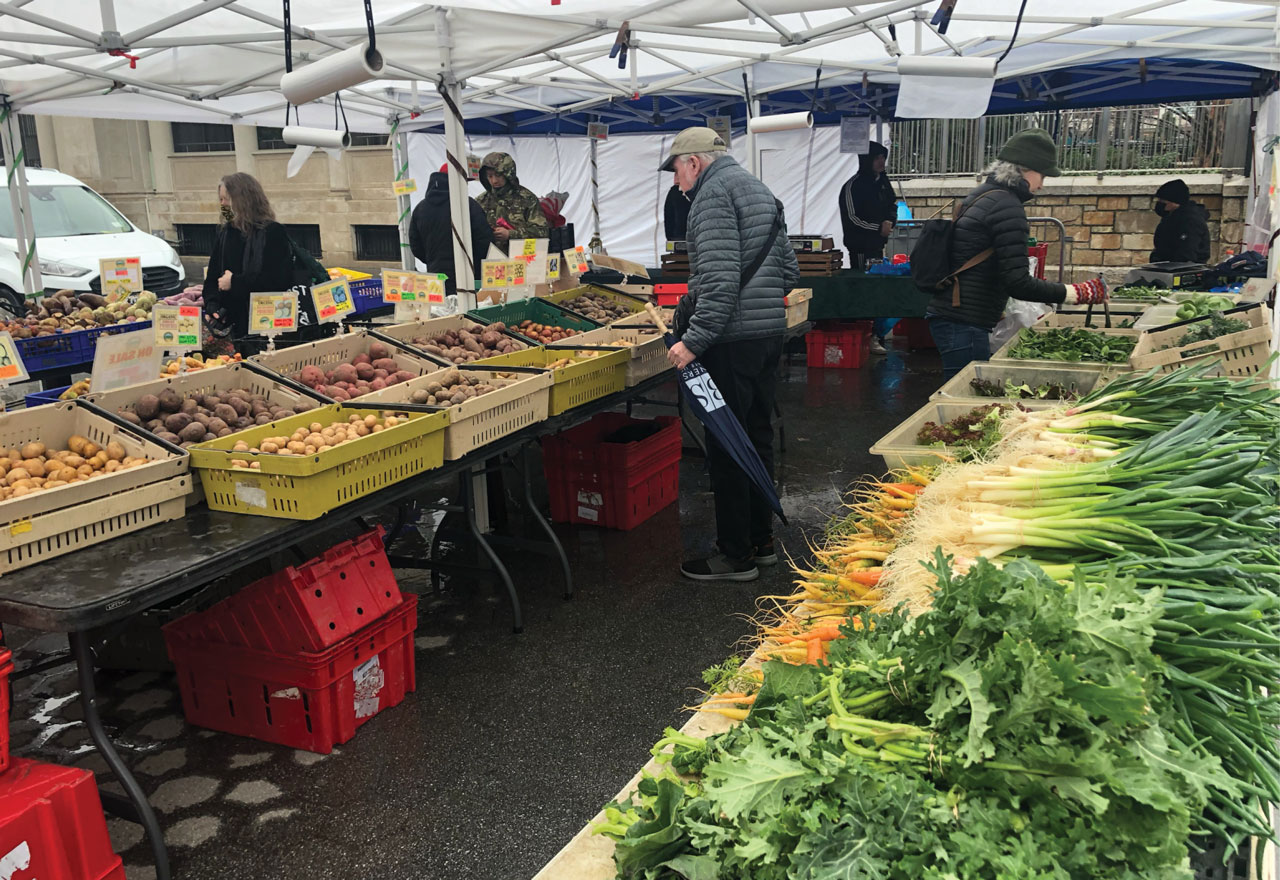Here’s a simple way to honor your local organic farmer: minimize food waste.
Making good use of their bounty requires quick action. “Organic vegetables aren’t sprayed with chemicals that kill everything in sight,” says Zaid Kurdieh, owner of Norwich Meadows Farm in New York. “They’re more prone to decay, which is a natural thing.”
Zaid and his wife, Haifa, are experts at preserving and eating their harvest. We interviewed Zaid for some tips, shared below:
Eat out of your freezer: The couple freezes everything, from okra, which they fry in olive oil first, to tomatoes. Once frozen, tomato skins slip off in a snap, giving you an easy base for a soup to sip while you wait for spring fields to thaw.
Prepare for pickle season: Haifa’s method for the brine: salt until you “can’t stand the saltiness.” They use plain white vinegar and store in the fridge for up to six months.
Tip: The faster you can preserve your cukes, the better. Just harvested cucumbers, he says, make the highest quality pickle. And keep your eyes out for Hakurei turnips. Pickle them with a beet, and you’ll end up with a delicious, vibrant red treat.
Go green: Buying local organic produce, especially in the spring, means eating a lot of greens. Haifa makes loads of spinach pies, then freezes them for easy dinners. (The recipe is very similar to these Palestinian Spinach Pies, but Haifa makes the triangles.) You can also sauté or steam your greens, then leave in the fridge. “But don’t cover them — they need that air.”
Use every part of the plant: Broccoli leaves can be used as greens. Brussels sprout stalks can be pickled or used like broccoli stalks. Make pesto out of your carrot greens. (Find more inspiration in 3 Ways to Change the Food System.)
Weather matters: A rainy season means more water content. So while veggies like squash can be stored on your counter, “that would be a case for processing sooner.” On the other hand, if the heat has been on in your house, your squash may look great on the outside, but may be losing moisture and withering away on the inside. And when the warm weather hits, save your produce from a case of heat stroke. “Keeping your produce at the right temperature increases your shelf life and prevents it from losing nutrients. It’s why we have refrigerated trucks.”
Avoid sprouts: Your sweet potatoes can decorate a bowl on your counter, but regular potatoes belong in a cellar or basement. Take your cue from Zaid’s Palestinian grandmother, who stored lemons by digging a hole in a ground, and get creative with your potato storage: “You can put them in a five-gallon bucket and cover with sand to keep the moisture out and extend the shelf life.”
Separate your squash: Here’s one tip to remember for the late summer/early fall. While your acorn, honeynut, and delicata squash make a beautiful centerpiece, they’re releasing ethylene. And one spoiled squash can quickly turn your veggies into compost.
Related Stories
The Chef’s Pick: Norwich Meadows Farm


